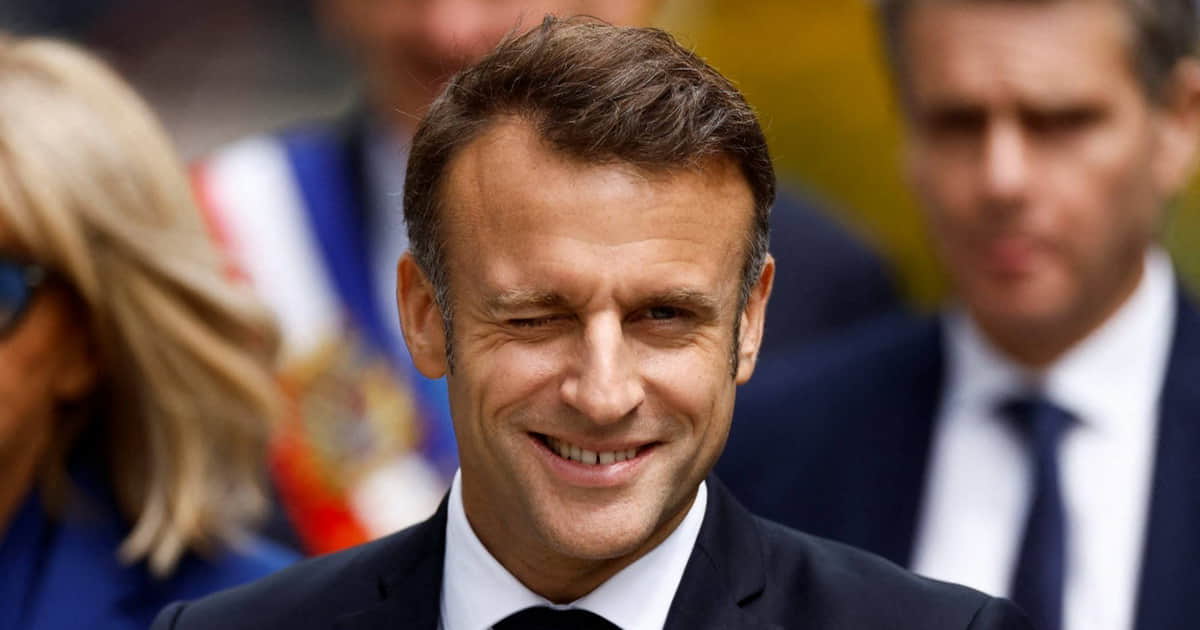How Macron controls political situation in France amid impeachment threats

The left-wing opposition in France has announced plans to use all constitutional measures to impeach Macron. The reason is the president's refusal to appoint their joint candidate Lucie Castets as prime minister. According to the leftists, the president is obligated to appoint her because the New Popular Front secured first place in the recent parliamentary elections.
However, Macron thinks differenly. He stated that he does not believe the parliamentary elections had a clear winner. Advertisement:
Read more to understand how Emmanuel Macron, despite not winning the parliamentary elections, is taking control of the political situation in France, in the article by Yurii Panchenko, a European Pravda editor - Impeachment is not intimidating: How Macron is forcing opponents to form a government convenient for him. President Macron "must know that all constitutional means will be used to remove him rather than subject us to his wicked move against the fundamental rule of democracy: in France, the only master is the popular vote." This bold statement was made by left-wing politicians, including the leader of the Unsubmissive France party, Jean-Luc Melenchon, exclusively for the newspaper La Tribune.
Among other things, the head of state is accused of "an institutional coup against democracy," expressed in his refusal to "acknowledge" the results of the parliamentary elections. To some extent, the announcement of a possible impeachment has become a desperate move for the left, as the NPF holds only 193 seats in the National Assembly, while 289 are needed for a majority. They would need to bring centrist or right-wing parties into the coalition to gain a majority, but the NPF clearly has issues with this.
This gave Macron grounds to refuse the nomination of Castets. It is very unlikely that the idea of removing Macron from office will be supported by two-thirds in both the National Assembly and the Senate. The appointment of the government, even under the most optimistic scenarios, will not happen until early September.
The President of France has invited all parliamentary parties for consultations on 23 August. One of the most common explanations for this delay is the lack of agreement among potential allies on implementing Macron's political plan. This plan involves splitting the New Popular Front with moderate leftists-socialists and ecologists, forming a coalition with the presidential bloc.
Ideally, the Republicans would also join or at least the part of the center-right party that refused to ally with the far-right. In case of this scenario, the new coalition would have at least 400 seats, significantly exceeding a parliamentary majority. Most importantly, neither the left nor the right would have a blocking vote, further enhancing the president's power.
However, implementing this plan has not been easy. Macron has also another option in reserve. To seek a coalition with the Republicans first and then add the leftists.
This option is not the best, as the right-wing has fewer seats. But it seems that Macron is considering this option as well. It's no coincidence that among the potential candidates for Prime Minister are two prominent Republican members.
Just a month and a half ago, it was hard to imagine that President Macron would retain his influence over political processes.
However, despite not winning the elections, he is gradually winning in the post-election negotiations.
If you notice an error, select the required text and press Ctrl + Enter to report it to the editors.